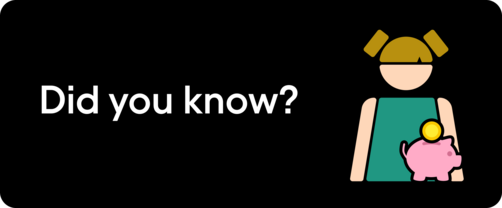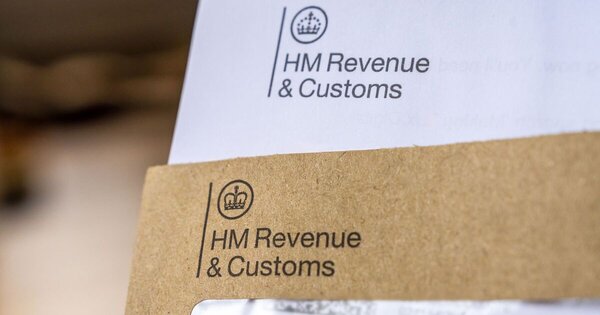Understanding the Low-Income Tax Aid System

Low-income tax aid is a crucial support mechanism for many individuals struggling financially. For the tax year 2022/23, various forms of tax credits and benefits helped thousands of people manage their finances more effectively. Understanding how this system works and whether you will be eligible for similar aid in the upcoming tax year can significantly impact your financial planning.
Tax credits and benefits provided by the government aim to support low-income earners by reducing their overall tax liabilities. These benefits often include direct cash payments, credits towards tax liabilities, and paid National Insurance contributions.
As we transition into the new tax year, it's essential to grasp the changes that may affect your eligibility for such support. Meeting with your accountant can provide personalised advice, but having an initial understanding beforehand can empower you to ask the right questions and streamline the process.
Government Tax Aid Explained
Government tax aid comprises various tax credits and benefits designed to assist low-income earners. These supports can significantly reduce your tax burden, lightening your financial load.


Criteria for Tax Credits
Eligibility for tax credits often depends on factors such as income level, employment status, and family size. Knowing these criteria helps in determining your eligibility.

In the tax year 2022/23, more than 1.5 million UK residents received tax credits due to their low-income status. This much needed support collectively amounted to over £20 billion.Tax Credits in 2022/23

During the 2022/23 period, the government paid National Insurance for over 800,000 individuals, ensuring their continued access to benefits without additional financial strain.National Insurance Contributions

Eligibility in 2023/24
Navigating eligibility for tax credits in 2023/24 requires a comprehensive understanding of various governmental support changes and updates. Factors influencing eligibility include income thresholds, employment status, family circumstances, and any recent adjustments to benefit rules.
Additionally, considering any regional variations in support and keeping abreast of annual updates to thresholds and allowances will be essential. Understanding these elements will help ensure that you maximise your entitlements and receive the correct level of support based on your current financial and personal situation.
Changes in Tax Aid Policies
Government policies surrounding tax aid and credits are subject to change, which can impact your financial planning significantly. It is crucial to stay informed about any alterations that could affect your eligibility by frequently consulting reliable sources such as HMRC updates, financial news, and official government websites.
Understanding these policies not only helps you retain your eligibility but also ensures you maximise the benefits you receive. Staying updated will allow you to adjust your financial strategies accordingly and make the most out of available tax credits and aid. Additionally, consider seeking advice from tax professionals who can provide tailored guidance based on the latest regulations.

Tips for Determining if you Will Qualify for Tax Credits?

Eligibility for tax credits depends on your annual income. Ensure you review the income thresholds for both Working Tax Credit and Child Tax Credit.Check Your Income Level

For Working Tax Credit, the number of hours you work is crucial. Typically, you need to work at least 30 hours a week to qualify.Review Your Work Hours

Your eligibility and the amount you can receive may vary if you have children or disabilities. These factors significantly influence the calculation of tax credits.Consider Your Family Situation

Fun Fact
Did you know that the UK government offers a variety of lesser-known tax credits and benefits for low-income earners? These may include housing benefits, child tax credits, and specific allowances for disabilities.
Expert Advice on Managing Tax Aid

It's crucial to manage and monitor your tax aid carefully. First, maintain accurate and up-to-date records of your income and employment status, as incorrect or outdated information can result in the loss of benefits. Secondly, understanding the specific documentation required for different types of aid helps ensure smooth and timely applications.
Regularly consult resources like the Pie Tax App to track your income and stay informed about changing policies. Additionally, meeting with your accountant frequently allows for personalised advice that caters to your unique situation. This proactive approach can help maximise benefits and streamline the application process.

Maintaining accurate income records is essential for staying eligible for tax credits. Regular updates ensure you receive the correct benefits and prevent potential overpayments or underpayments. Use digital tools like the Pie Tax App for efficient tracking and documentation.Accurate Income Records

Regular consultations with experts in benefit entitlements can give you tailored insights into your eligibility criteria, allowances, and benefits. This habit not only keeps you informed but can also help you adapt to any changes in tax policies swiftly.Timely Consultations
Summary
Managing tax aid effectively is vital for individuals with low income. By understanding the eligibility criteria and staying updated on governmental changes, you can maximise the benefits available to you. The use of resources like the Pie Tax App and frequent consultations with professionals can provide the necessary support and information to navigate this complex system efficiently.
Financial planning involves not just understanding your current entitlements but also being proactive in maintaining accurate records and seeking timely advice. Leveraging digital tools and expert assistance can significantly improve your ability to benefit from tax aids, ensuring ongoing financial support and stability.
Frequently Asked Questions
Will I be eligible for tax credits this year?
Your eligibility will depend on various factors such as income level, employment status, and family size. Use the Pie Tax App for precise income tracking.
How do tax credits impact my tax return?
Tax credits directly reduce the amount of tax you owe, thereby lowering your overall tax liability. They can result in refunds or reduced tax payments.
Can I claim tax credits if I have children?
Yes, having children can impact your eligibility and the amount of tax credits you receive. Child Tax Credit is specifically designed to support families with children.
What should I do if my income or family situation changes?
It's essential to report any changes in your income, work hours, or family circumstances to HMRC as soon as possible to ensure your tax credits are accurately calculated.
How do my working hours affect my eligibility for Working Tax Credit?
Generally, you must work a minimum number of hours per week to qualify. For instance, you usually need to work at least 30 hours if you're aged 25-59.











